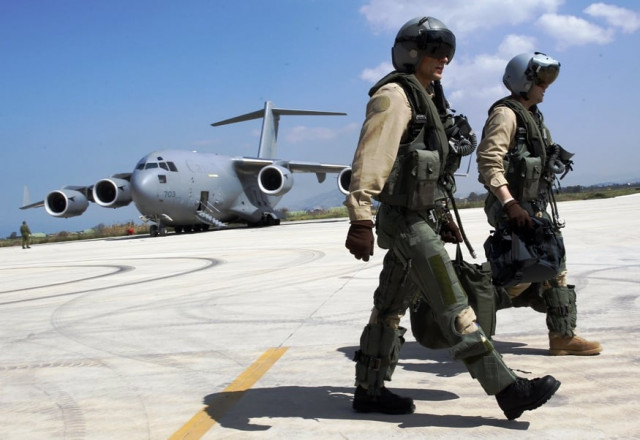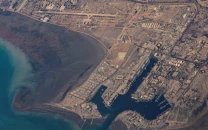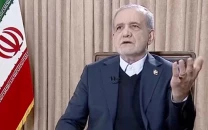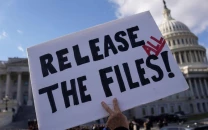NATO blocks 'front door' for arms smugglers into Libya
Several NATO nations that are taking part and want the military alliance to take the reins from the coalition.

"The sea is the easiest, fastest and most direct way to get arms into Libya. We are cutting off that area," said Rinaldo Veri, head of Operation Unified Protector at NATO's navy base in Naples, headquarters for the mission.
"I hope we can close all the windows, but one thing is sure: we are closing the main front door," he added.
"The operation will assist in reducing the number of arms, related materials and mercenaries to and from the coastal waters of Libya," Veri said.
"Maritime assets supported by NATO aircraft are working to reduce the flow of war materials and will support the UN resolution to end the attacks on civilians in Libya," he said.
Britain, Canada, Greece, Italy, Spain, Turkey and the United States have already offered ships to help enforce the embargo.
Despite the row over who should be running the broader military operations, Turkey offered six vessels, including one submarine, during talks in Brussels on Wednesday.
"A task force of vessels, submarines, and maritime control aircraft is moving into position," Veri said, without specifying precise numbers.
Working in close cooperation with commercial shipping organisations, the mission aims to ensure the free flow of legitimate ships in and out of Libya while stopping and searching suspect vessels using every means necessary.
"If we suspect a ship is attempting to breach the embargo... it may be necessary to send armed military aboard. If we encounter resistance, the use of force may be necessary," Veri said.
“The Italian-controlled operation has a highly developed awareness of the Mediterranean and tried and tested tools for intercepting vessels”, he added.
The operation began on Wednesday at 1700 GMT.
Six ships reached international waters off Libya while patrol aircraft and fighter jets headed to the area to provide long-range surveillance and intercept flights suspected of carrying weapons, NATO said.
Veri said he was not aware that anything has been intercepted so far.
As the NATO embargo operation got underway, uncertainty still reigned over whether the 28-nation alliance would also take charge of the 'no-fly zone' operation that has been run by a US-led coalition until now.
Several NATO nations that are taking part and want the military alliance to take the reins from the international coalition led by Britain, France and the United States.






1721969212-0/BeFunky-collage]-(35)1721969212-0-208x130.webp)












COMMENTS
Comments are moderated and generally will be posted if they are on-topic and not abusive.
For more information, please see our Comments FAQ